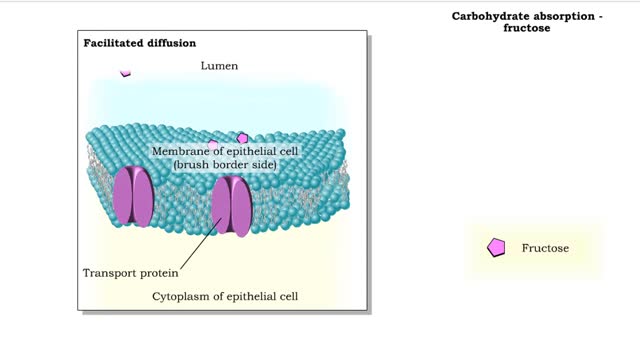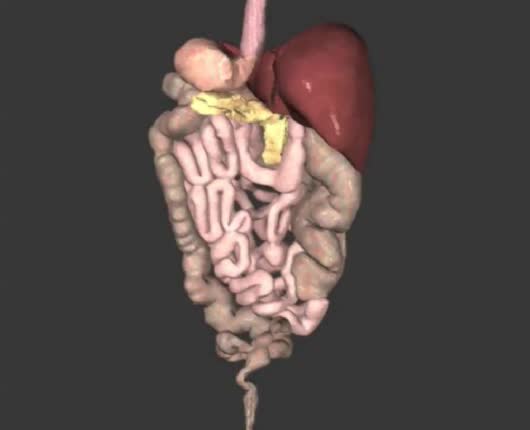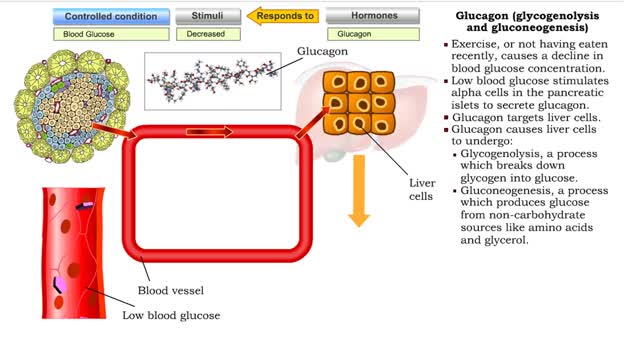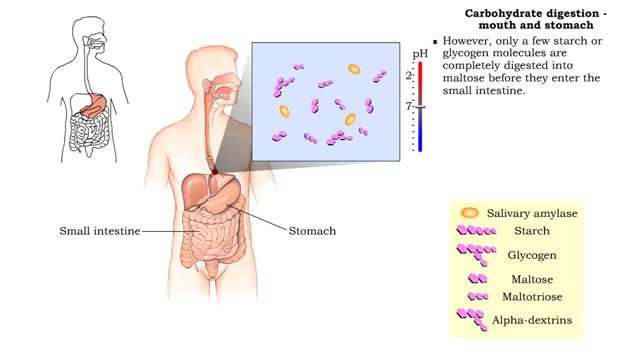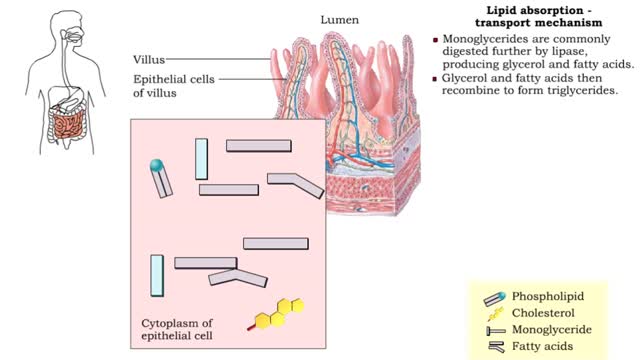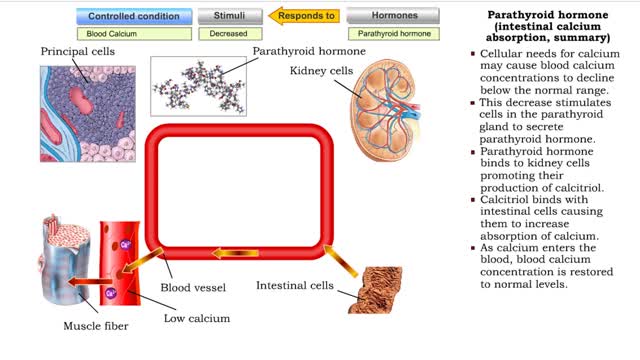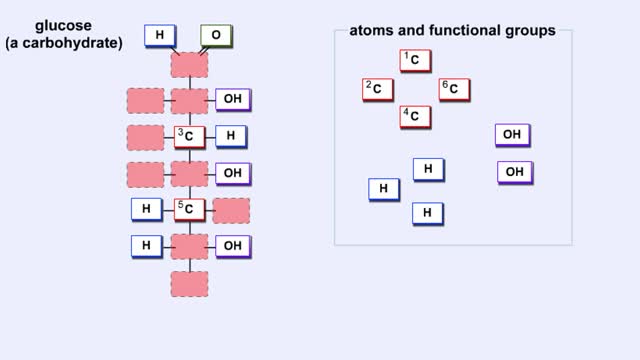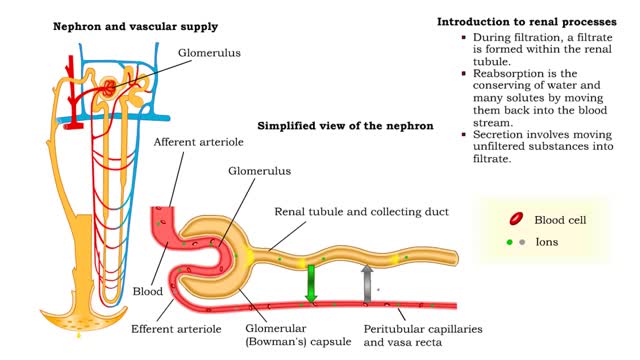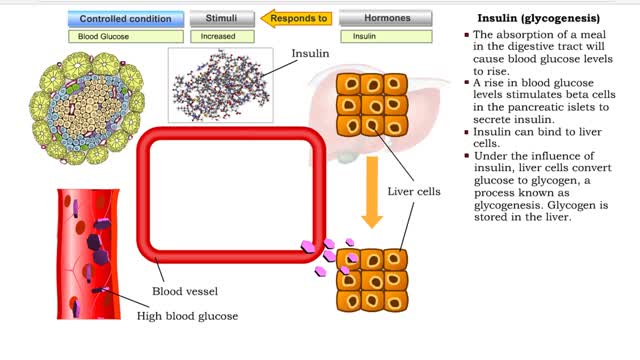Search Results
Results for: 'Carbohydrate absorption'
Carbohydrate digestion (brush border enzymes, end products) & Carb absorption (fructose, galactose)
By: HWC, Views: 10376
• Carbohydrate digestion concludes in microvilli of the small intestine, in brush border epithelial cells. Carbohydrate digestion -brush border enzymes • Four brush-border enzymes are involved: • Alpha-dextrinase breaks down alpha-dextrin chains by removing glucose units. • Sucras...
By: Administrator, Views: 13691
Digestive system contains both primary and accessory organs for the conversion of food and fluids into a semiliquid that can be absorbed for the body to use. Three main functions: - Digestion - Absorption - Elimination With aging: - Digestive system becomes less motile. - Glandular sec...
Glucagon (glycogenolysis and gluconeogenesis)
By: HWC, Views: 10307
• Exercise, or not having eaten recently, causes a decline in blood glucose concentration. • Low blood glucose stimulates alpha cells in the pancreatic islets to secrete glucagon. • Glucagon targets liver cells. • Glucagon causes liver cells to undergo: • Glycogenolysis, a proce...
Carbohydrate digestion - mouth and stomach & pancreas and small intestine
By: HWC, Views: 10291
• Digestion of complex carbohydrates (starches and glycogen) involves: • Amylases produced by the salivary glands and pancreas. • Brush-border enzymes in small intestine. • In the mouth, amylase from the parotid and submandibular salivary glands begins carbohydrate digestion. �...
Lipid absorption - end products & transport mechanism
By: HWC, Views: 10066
• The end products, fatty acids and monoglycerides, depend on bile salts for absorption. • Bile salts form micelles (tiny spheres), which ferry fatty acids and monoglycerides to epithelial cells. • Free fatty acids, monoglycerides, and some phospholipids and cholesterol molecules, dif...
Parathyroid hormone (bone resorption) & Calcitonin (bone deposition)
By: HWC, Views: 10362
• Cellular needs for calcium may cause blood calcium concentrations to decline below the normal range. • This decrease stimulates cells in the parathyroid gland to secrete parathyroid hormone. • Binding of parathyroid hormone to osteoclasts in bone tissue promotes bone resorption and th...
What Are Carbohydrates? Importance of Carbs & High Carb Food
By: HWC, Views: 10544
We hear a lot about carbohydrates in the news. Everybody seems to be on a low-carb diet. The news media often has stories on this diet fad, and companies are busy producing products with reduced carbohydrates. What's this fascination with carbohydrates? In a word: "Diet." The fact is that carb...
Carbohydrate Metabolism: Introduction to renal processes and filtrate formation and composition
By: HWC, Views: 10635
• At the nephron, the three process responsible for the formation of urine include: • Glomerular filtration. • Tubular reabsorption. • Tubular secretion. • During filtration, a filtrate is formed within the renal tubule. • Reabsorption is the conserving of water and many s...
Insulin (glucose uptake by body cells), glycogenesis and lipogenesis
By: HWC, Views: 10627
Insulin is the regulator that allows the sugar from the foods we eat (be it a piece of cake or a stick of celery) to enter our tissues and become part of the metabolic process. Insulin is made by the Islets of Langerhans, which are found in the pancreas of every person. As we previously mentio...
Advertisement



